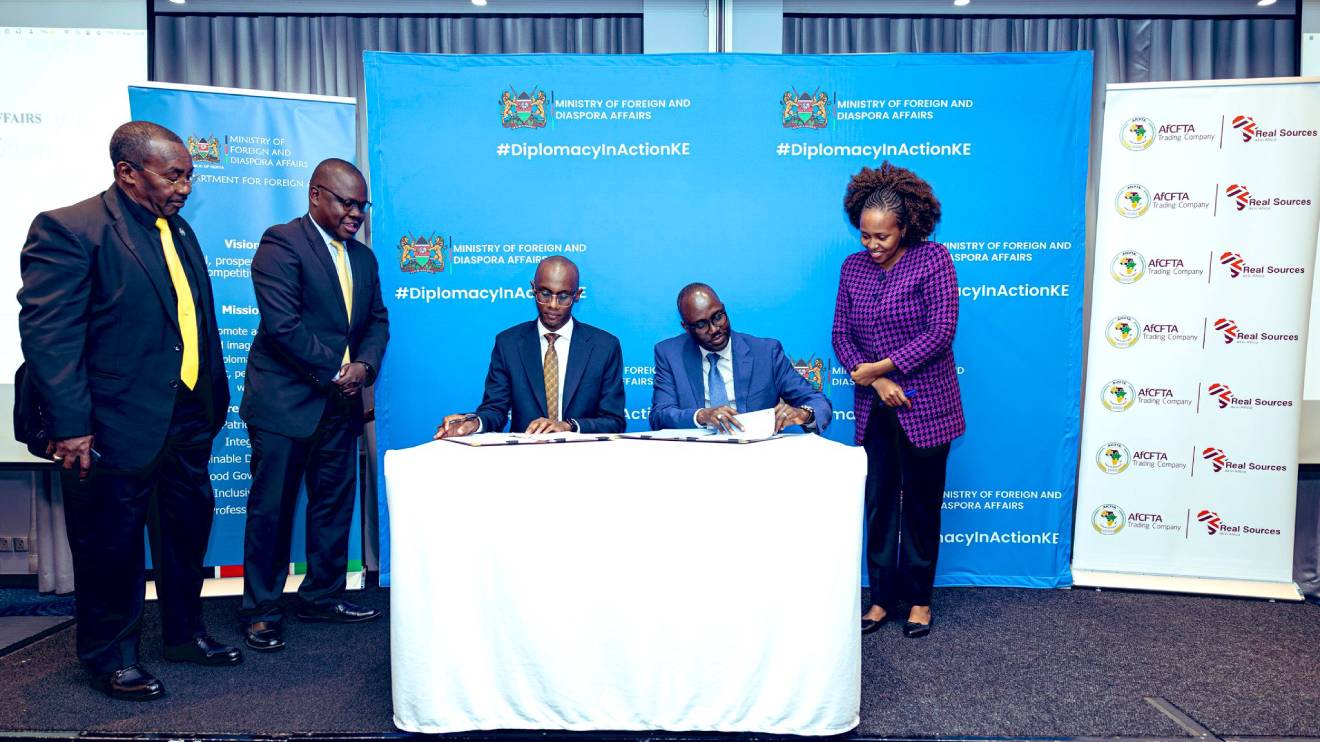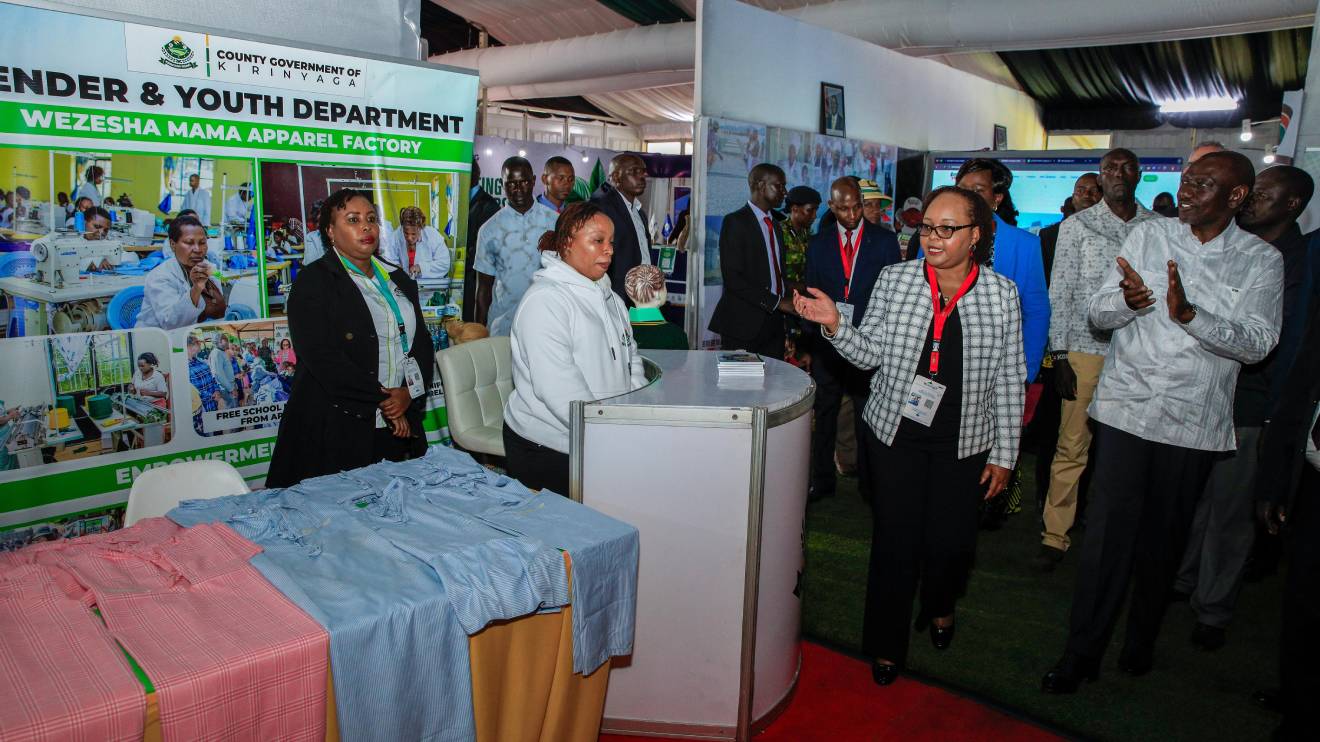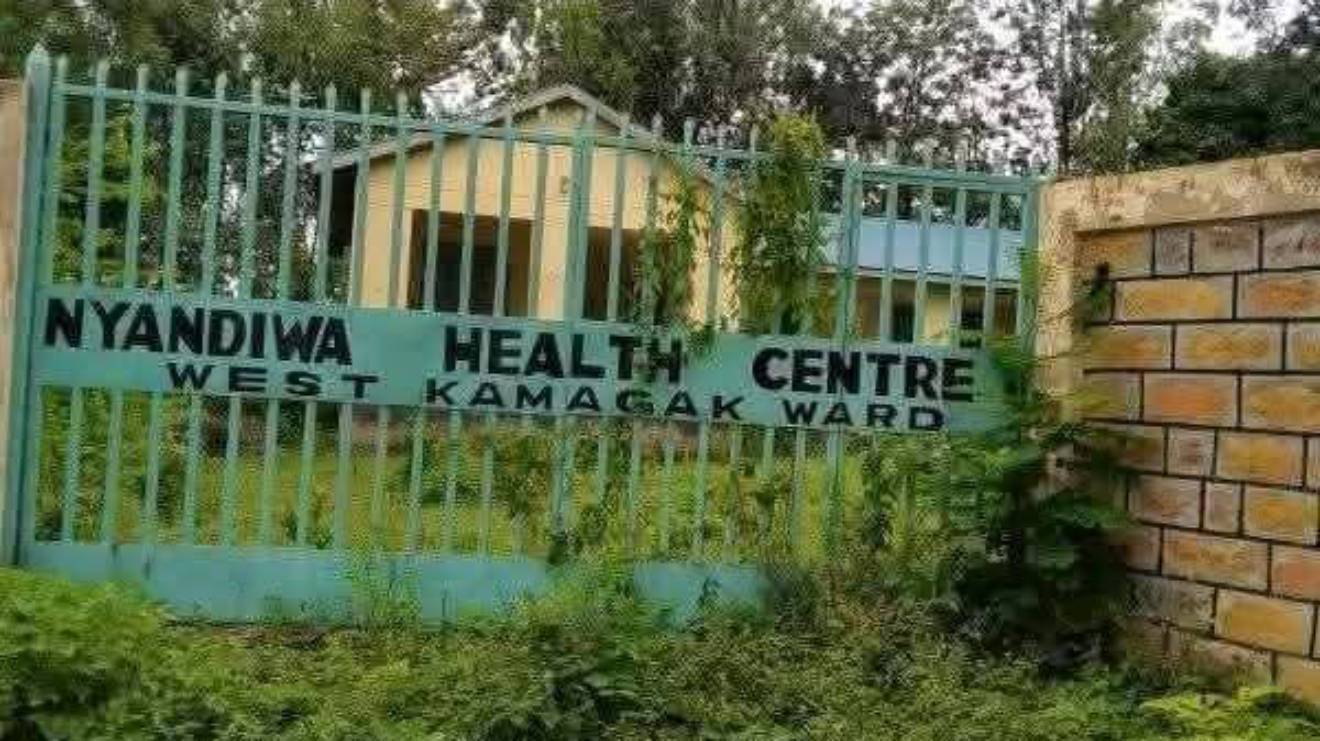Kenya is repositioning its embassies to act as economic outposts after the Ministry of Foreign and Diaspora Affairs signed a partnership with Real Sources Africa, a homegrown digital firm.
The move is designed to connect local businesses, especially small and medium-sized enterprises, with reliable buyers across global markets.
Foreign Affairs Principal Secretary Korir Sing’Oei linked the agreement to the country’s updated foreign policy of December 2024, which places commerce at the centre of diplomatic activity.
"Our diplomatic missions will now serve as hubs for the furtherance of economic diplomacy," Sing’Oei.
"The government has made progress in expanding productivity across key sectors including coffee, tea, dairy, horticulture and fisheries, while negotiating market access with partners such as the European Union, China, the UAE and the United States.”
Read More
While Kenya already benefits from preferential access to more than 800 million consumers through the African Continental Free Trade Area, the Tripartite Area and the East African Community, Sing’Oei cautioned that inadequate market intelligence remains a stumbling block.
“It is not simply a question of transport connectivity, but an informational gap, knowing what we produce, in what quantities and quality, versus what global markets demand. This partnership directly addresses that gap,” he said.
Real Sources Africa, which is youth-led and technology-driven, will anchor the digital side of the collaboration.
The company has previously worked with the Ministry of Trade, Cooperatives and MSMEs on its Trade Connect Africa programme, which pools Kenyan products and services before linking them to international demand.
ItsChief Executive Officer Felix Chege emphasised that embassies would now play a more practical role in trade facilitation.
“Our diplomatic missions are one of the tools we require to reach our target markets. This collaboration ensures that Kenyan SMEs now have a structured channel to meet global demand,” Chege noted.
Officials expect the arrangement to make foreign missions quicker and more transparent in responding to business inquiries, effectively embedding trade support within Kenya’s diplomatic operations.
For small producers, from coffee farmers to horticultural exporters, it could open new paths into markets once out of reach.









